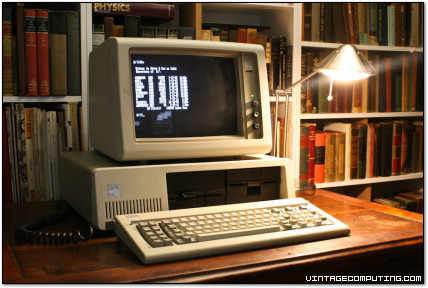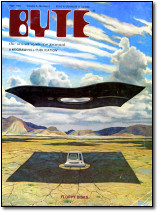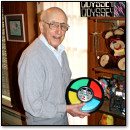Archive for the 'News & Current Events' Category
Analogue Launches ‘Nt Mini’ Modernized NES Console
Monday, August 22nd, 2016The upcoming NES Classic has its first high-end competitor.
Just today, Seattle-based Analogue is announcing the Analogue Nt Mini, a miniaturized version of its videophile-grade NES-compatible console that debuted earlier this year. The intention, according to Analogue founder Christopher Taber, is to go head-to-head with the NES Classic console from Nintendo that ships in November.
It will not be undercutting the NES Classic in price, however. This little beauty will cost you $449.
Unlike the earlier Analogue Nt, which was partially made out of recycled parts from authentic Nintendo Famicom circuit boards, the Nt Mini utilizes FPGA technology to simulate the authentic NES chips in a smaller package.
The Mini also includes RGB+HDMI output by default (HDMI was an upgrade option for the original, limited-edition Analogue console) and an 8Bitdo wireless NES controller and Retro Receiver for wireless play. It plays games off of original NES and Famicom cartridges.
Despite its attention to built quality, the Analogue Nt Mini is a very expensive proposition — especially when you can buy a working original NES on eBay for anywhere from $40-$100, and Nintendo’s own HD NES Classic will retail for $59.99 (of course, that model will only play 30 built-in games).
And if you think $449 is expensive, keep in mind that this is the same company sold a 24K gold version of the first Analogue Nt for $5000. So much like buying a $200 bottle of wine, cultural cachet is a big part of Analogue’s marketing angle.
I will try to get my hands on an Analogue Nt mini for a review and see if that price can possibly be justified. Until then, Analogue is opening up its site for Nt Mini pre-orders today if you’d like to dive into boutique NES waters head first.
It’s amazing to me that it’s 2016 and the the NES console market is heating up in ways I never thought possible. (We’ve come a long way from the Generation NEX, which inspired me to launch this site back in 2005.) Between this new unit from Analogue, Nintendo’s NES classic, and RetroUSB’s AVS — a $180 HD NES remake which I intend to review soon — I can see that I am going to have a fun and busy fall.
The IBM PC Turns 35
Friday, August 12th, 2016
35 years ago today, IBM launched the IBM Personal Computer — the first-ever IBM PC. While it was simply called the “IBM Personal Computer” back then, we now know it more commonly by its model number, 5150.
PCWorld recently asked me to do something to celebrate this anniversary, so just a few days ago, I took apart my personal IBM PC 5150 and documented the process on my workbench. And back in 2011, I wrote some other articles about the IBM PC on the occasion of the machine’s 30th anniversary.
In fact, I’ve done a lot of coverage of the IBM PC over the years, so I thought you guys might enjoy seeing a collection of all of them in one place. Here we go.
Features
- Inside the IBM PC 5150 (PCWorld, 2016)
I examine and take apart IBM’s first PC on my trusty workbench - Can You Do Real Work With the 30-Year-Old IBM 5150? (PCWorld, 2011)
I spent a week with the IBM PC using it for modern work like word processing, graphics, and even Internet tasks - IBM PC Oddities (Technologizer, 2011)
Neat and unusual trivia, accessories, cultural moments surrounding the IBM PC - Ten Greatest MS-DOS Games of All Time (PC World, 2011)
Exactly what it sounds like — the best IBM PC games that ran in DOS. - Classic PCs vs. New PCs: Their True Cost (Technologizer, 2009)
Wherein I compared the IBM PC (among other computers) to modern cost-equivalents when adjusted for inflation - Inside the World’s Greatest Keyboard (PCWorld, 2008)
I took apart an IBM PC AT-era (1984) Model M keyboard, which set the standard for all PC keyboards
IBM PC Retro Scans of the Week
- Disemboweled IBM PC 5150 (2016)
- The Official IBM PC Desk (2012)
- My Own IBM Computer (2011)
- The IBM PC Kid (2010)
- IBM Taught Me How to Read (2010)
- Stunning IBM PC Paper Art (2008)
- Presenting the IBM of Personal Computers (2006)
IBM PC-Related VC&G Posts
- Origins of the ASCII Smiley Character: An Email Exchange With Dr. David Bradley (2015)
- The Beleaguered IBM PC in History (2011)
- IBM PC 30th Anniversary Extravaganza (2011)
- A Few Thoughts on the IBM PC’s Birthday (2011)
There may be more lurking out there, but that’s quite a bit of reading if you’re interested in the IBM PC.
Andrew S. Grove (1936-2016)
Tuesday, March 22nd, 2016 In Memoriam: Andrew S. Grove (1936-2016),
In Memoriam: Andrew S. Grove (1936-2016),
Former President, CEO, and Chairman of Intel
Few tech executives have had as monumental an impact on the computer industry as Andy Grove, who passed away yesterday at the age of 79. His stewardship of Intel marked a period of astounding success and growth for the company, including establishing the firm’s x86 microprocessors as a de facto standard for the PC industry — a legacy that continues today. May he rest in peace.
One Scan Per Week for Ten Years
Monday, February 1st, 2016
On January 30th, 2006, I posted my first entry in the Retro Scan of the Week column: “When to Use Low Speed Modems.” Below that first scanned image, I wrote:
I found this amusing, so I thought I’d share it. More to come.
I was right about that last sentence. Since then, I’ve shared weekly scans on my blog 522 times — every Monday for 10 years.
Yep, Retro Scan of the Week just turned 10.
While it is not an achievement on-par with, say, building the pyramids, working at the same company for 50 years, or hosting a late-night talk show for decades, I am slightly overwhelmed when I try to consider the scope of this anniversary and what it actually means to me personally.
 What I think it means is that I have been dedicated to preserving computer and video game history for an officially long time now (this blog itself turned ten last year). And I have always wanted to share it with others. Retro Scan of the Week has been a regular and effective way to achieve both goals.
What I think it means is that I have been dedicated to preserving computer and video game history for an officially long time now (this blog itself turned ten last year). And I have always wanted to share it with others. Retro Scan of the Week has been a regular and effective way to achieve both goals.
For years, I have used the column as an opportunity to provide more than just images. When I could, I have attached personal commentary about the scans I’m showcasing because I hope it will give valuable context to future historians (assuming copies of my blog survive that long). Also, reader comments have been equally important in capturing the firsthand reactions to products and events over time.
Without that extra something that gives RSOTW its unique quality, I probably would have quit posting them years ago. But NOPE. 10 years.
The End of an Era?
On the occasion of this colulmn’s fifth anniversary, I wrote a retrospective that is worth reading if you are interested in learning some historical background on my Retro Scan of the Week column. (There’s also more about RSOTW in this interview from last year.)
 That earlier anniversary — coming in a different era where blogs and scans were slightly more relevant — felt more meaningful somehow. At that point, I had done something for a long time (in blog years). Now I’ve done it twice as long. And honestly, not much has changed in five years, other than the fact that I finally upgraded to an 11″x17″ large format scanner last year — and that there are twice as many scans on this blog.
That earlier anniversary — coming in a different era where blogs and scans were slightly more relevant — felt more meaningful somehow. At that point, I had done something for a long time (in blog years). Now I’ve done it twice as long. And honestly, not much has changed in five years, other than the fact that I finally upgraded to an 11″x17″ large format scanner last year — and that there are twice as many scans on this blog.
But now that I have reached this milestone, I think I might be winding down the column some time soon. While it wouldn’t be too hard to keep going for years on end, I think ten years is a nice emotional and philosophical cap to this project.
For now, I’ll mull it over. It’s a hard considering pulling the plug on something you’ve spent every Monday for ten years doing. But whatever happens, there will be a legacy left behind. At some point I plan to put all my high-res scans on the Internet Archive, for example. And RSOTW images still haunt Google Image Searches like nobody’s business. I keep running in to my own work when I’m trying to research something else.
Whatever happens, it has been a fun 10 years. Thanks for reading along with me as we have rediscovered the past together.
[ Retro Scan of the Week ] The Laser 128 Family
Monday, November 23rd, 2015This Apple II-clone machine became popular in the mid-late 1980s as a low-cost alternative to the Apple IIc (almost half the price but twice the RAM — scratch that, Apple IIc had 128K too), especially for home use. I have a Laser 128 in nearly pristine condition in the box, and it feels nice to use. It echoes the integrated form factor of the IIc, which makes it convenient to setup in a pinch if you need to pull out an Apple II in an emergency. Or at least that’s how I use it.
Discussion Topic of the Week: Do you have any Thanksgiving computer or gaming traditions? Tell us about them.
Benj’s ‘This Old Tech’ Column Debuts on PCWorld.com
Friday, November 6th, 2015Today, PCWorld published the inaugural entry of my new column, This Old Tech. In the column, I will be writing about vintage gadgets, games, and computers — pretty much the same stuff I talk about on Vintage Computing and Gaming. So far, the plan is to publish a new piece every Friday.
For the first column, I talk about the first MS-DOS computer I ever learned to use, the Toshiba T1000 laptop. I still have the same machine from all those years ago, so aside from just waxing nostalgic, I also attempt to get it working again.
So spread the word — I am looking forward to exploring my personal tech history in this new column. I hope you enjoy it.
VC&G Interview: Benj Edwards, Creator of Vintage Computing and Gaming
Monday, November 2nd, 2015 [ Earlier this year, I asked readers what they wanted to see on VC&G’s tenth anniversary. Most people said “behind the scenes coverage,” but I wasn’t sure how to approach that. So I asked my longtime editing partner Harry McCracken to interview me in the hopes that I might accidentally say something interesting about the history of the site. Happy Anniversary, VC&G readers. — Benj ]
[ Earlier this year, I asked readers what they wanted to see on VC&G’s tenth anniversary. Most people said “behind the scenes coverage,” but I wasn’t sure how to approach that. So I asked my longtime editing partner Harry McCracken to interview me in the hopes that I might accidentally say something interesting about the history of the site. Happy Anniversary, VC&G readers. — Benj ]
I first met Benj Edwards back in 2007, when I worked at PC World magazine and he submitted an article — “The 10 Worst PC Keyboards of All Time” — over the transom. (Actually, we didn’t meet in person until later, and his submission arrived in my inbox like any other email, but you get the idea.) Even then, I was already a fan of his Vintage Computing and Gaming website, which was then a couple of years old.
We ended up publishing Benj’s keyboard slideshow at PCWorld.com, where it became a monster hit with readers. Since then, Benj and I have continued our writer-editor relationship: first at Technologizer, and today at Fast Company, where I’m an editor and he’s a frequent contributor, writing deeply-reported pieces about fascinating topics which everyone else has forgotten about. He’s also contributed to The Atlantic, Macworld, PCMag, Wired, and other publications.
Benj has never stopped blogging at Vintage Computing and Gaming, which celebrates its tenth anniversary today. To commemorate the occasion, he asked me to interview him about the site, his other writings, and his pursuit of collectible tech products and the stories behind them. I learned a lot from his answers — and so will you.
–Harry McCracken
10 DAYS OF VINTAGE: Day 1
[ Continue reading VC&G Interview: Benj Edwards, Creator of Vintage Computing and Gaming » ]
Vintage Computing and Gaming Turns Ten: Announcing 10 Days of Vintage
Monday, November 2nd, 2015 Ten years ago today, I posted my first entry on Vintage Computing and Gaming. It was a long, rambling piece about my personal history with computers and video games.
Ten years ago today, I posted my first entry on Vintage Computing and Gaming. It was a long, rambling piece about my personal history with computers and video games.
Ten years later, I’m still rambling. It’s been fun.
Little did I know when I started this blog how long I would be doing this, and what it would lead to. These past ten years, I have been fortunate enough to meet or interview many of my childhood heroes. I have been able to contribute, in a positive way, to the world’s understanding of computer history. And I have scanned enough material to wrap around the…
 Wait a minute. I’m getting a feeling of deja vu — like I’ve been in this exact position before. Same blog software and everything. Same familiar white form box starting at me with unflinching eyes, yellow JavaScript-enabled editing tags lined along the edges like they want to jump in and join the party.
Wait a minute. I’m getting a feeling of deja vu — like I’ve been in this exact position before. Same blog software and everything. Same familiar white form box starting at me with unflinching eyes, yellow JavaScript-enabled editing tags lined along the edges like they want to jump in and join the party.
Oh, that’s why. I just checked, and I have previously celebrated the anniversary of this site four times. Every time, I pretty much say the same thing over and over again: “Thanks, this is amazing.” Here’s the proof:
The History of Celebrating VC&G Anniversaries
- Vintage Computing and Gaming Turns One (2006)
- VC&G Turns Three (2008)
- VC&G: Still Here After Four Years (2009)
- Five Years of VC&G (2010)
There may be more secret VC&G anniversary celebrations hidden away within these ten years of posts for all I know. Either way, that’s a lot of celebrating. To put an end to this, I propose a five year moratorium on VC&G anniversary celebrations.
…Starting next year, of course. For now, I’ve got something special planned.
[ Continue reading Vintage Computing and Gaming Turns Ten: Announcing 10 Days of Vintage » ]
[ Retro Scan of the Week ] VINTAGECOMPUTING.COM
Monday, November 2nd, 2015 “I REPEAT, THIS IS NOT AN INVOICE”
“I REPEAT, THIS IS NOT AN INVOICE”
Although Vintage Computing and Gaming turns 10 years old today, I actually registered the “vintagecomputing.com” domain name back on June 8, 2000. This is what Network Solutions sent to me in the mail. I was only 19 years old — now I’m 34. Time flies.
It wasn’t the first domain I’d ever registered, but it was an early one. I wanted to use vintagecomputing.com for an online computer museum that would show off my vintage computer and video game collection. I never got around to creating that.
Another project got in the way of all of those plans, and I ended up working on music at Request-A-Song.com instead until October 2005.
I finally put my vintagecomputing.com domain to good use — over five years later — when I decided to make a blog on that fateful day in November 2005.
Discussion Topic of the Week: What was the first domain name you ever registered?









